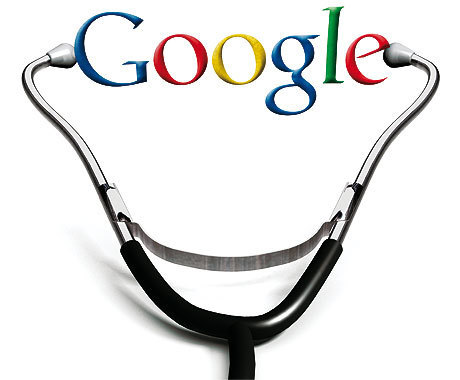Etude BVA : Les Français sont largement prêts pour l’e-santé
17/10/2013REGARDS SUR LE NUMERIQUE | Santé et numérique : Six Startups à suivre
17/10/2013Should Doctors ‘Google’ Their Patients?
Beware of what you share. Employers now routinely utilize internet search engines or social network searches to obtain information about job applicants. A survey of 2,184 hiring managers and human resource professionals conducted by the online employment website CareerBuilder.com revealed that 39% use social networking sites to research job candidates. Of the group who used social networks to evaluate job applicants, 43% found content on a social networking site that caused them to not hire a candidate, whereas only 19% found information that that has caused them to hire a candidate. The top reasons for rejecting a candidate based on information gleaned from social networking sites were provocative or inappropriate photos/information, including information about the job applicants’ history of substance abuse.
This should not come as a surprise to job applicants in the US. After all, it is not uncommon for employers to invade the privacy of job applicants by conducting extensive background searches, ranging from the applicant’s employment history and credit rating to checking up on any history of lawsuits or run-ins with law enforcement agencies. Some employers also require drug testing of job applicants. The internet and social networking websites merely offer employers an additional array of tools to scrutinize their applicants. But how do we feel about digital sleuthing when it comes to relationship that is very different than the employer-applicant relationship – one which is characterized by profound trust, intimacy and respect, such as the relationship between healthcare providers and their patients?
The Hastings Center Report is a peer-reviewed academic bioethics journal which discusses the ethics of « Googling a Patient » in its most recent issue. It first describes a specific case of a twenty-six year old patient who sees a surgeon and requests a prophylactic mastectomy of both breasts. She says that she does not have breast cancer yet, but that her family is at very high risk for cancer. Her mother, sister, aunts, and a cousin have all had breast cancer; a teenage cousin had ovarian cancer at the age of nineteen; and that her brother was treated for esophageal cancer at the age of fifteen. She also says that she herself has suffered from a form of skin cancer (melanoma) at the age of twenty-five and that she wants to undergo the removal of her breasts without further workup because she wants to avoid developing breast cancer. She says that her prior mammogram had already shown abnormalities and she had been told by another surgeon that she needed the mastectomy.
Such prophylactic mastectomies, i.e. removal of both breasts, are indeed performed if young women are considered to be at very high risk for breast cancer based on their genetic profile and family history. The patient’s family history – her mother, sister and aunts being diagnosed with breast cancer – are indicative of a very high risk, but other aspects of the history such as her brother developing esophageal cancer at the age of fifteen are rather unusual. The surgeon confers with the patient’s primary care physician prior to performing the mastectomy and is puzzled by the fact that the primary care physician cannot confirm many of the claims made by the patient regarding her prior medical history or her family history. The physicians find no evidence of the patient ever having been diagnosed with a melanoma and they also cannot find documentation of the prior workup. The surgeon then asks a genetic counselor to meet with the patient and help resolve the discrepancies. During the evaluation process, the genetic counselor decides to ‘google’ the patient.
The genetic counselor finds two Facebook pages that are linked to the patient. One page appears to be a personal profile of the patient, stating that in addition to battling stage four melanoma (a very advanced stage of skin cancer with very low survival rates), she has recently been diagnosed with breast cancer. She also provides a link to a website soliciting donations to attend a summit for young cancer patients. The other Facebook page shows multiple pictures of the patient with a bald head, suggesting that she is undergoing chemotherapy, which is obviously not true according to what the genetic counselor and the surgeon have observed. Once this information is forwarded to the surgeon, he decides to cancel the planned surgery. It is not clear why the patient was intent on having the mastectomy and what she would gain from it, but the obtained information from the Facebook pages and the previously noted discrepancies are reason enough for the surgeon to rebuff the patient’s request for the surgery.
See on www.scilogs.com




